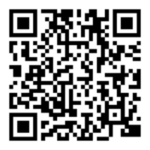Introduction
Supporting your family abroad is an act of love. It’s a powerful way to stay connected and provide meaningful help to those who matter most. However, managing your financial stability while sending money back home can sometimes be challenging. The good news? With thoughtful planning and the right tools, you don’t have to choose one over the other. You can support your loved ones and build a solid financial foundation for yourself. In this post, we’ll explore practical tips to help you achieve both.
Know where your money is going
Whether you’re financially savvy or not, the first step toward financial wellness is knowing how your money moves. Track your income, monthly expenses, debt (if any), and the average amount you send abroad. This helps paint a clear picture of your financial habits and highlights areas where you can cut back.
Budgeting apps like Mint, YNAB (You Need a Budget), or even simple spreadsheets can help you categorize spending and money transfers. Once you understand your financial rhythm, creating a plan that works for you and your family becomes much easier, without overextending yourself.
For further guidance on budgeting apps, check out our additional resources on [Best budgeting apps].
Set financial priorities
When setting financial goals, it’s important to recognize that not all goals carry the same weight. Distinguishing between short-term and long-term objectives will help you stay focused and make better financial decisions.
Short-term goals include building an emergency fund, paying off high-interest credit cards, or covering essential upcoming expenses. Long-term goals could involve saving for a down payment on a home, investing for retirement, or funding a child’s education.
Having a clear set of priorities provides a roadmap for allocating resources wisely, ensuring you can support your loved ones without putting your own financial stability at risk.
Build an emergency fund
Life is unpredictable. From car repairs to medical bills or job loss, emergencies happen. An emergency fund provides a financial cushion and gives you peace of mind.
Start small if you need to—$10, $20, or whatever is manageable. The key is consistency. Set the money aside in a savings account where it’s safe but accessible. Even if you’re sending money abroad, building your emergency fund ensures you won’t need to rely on credit cards or loans in times of crisis—and that you can continue to help your loved ones when it truly matters.
Send money smarter
If you send money regularly, minor tweaks in your strategy can lead to significant savings. Avoid last-minute transfers, as rush fees can significantly increase costs. Instead, plan your transfers in advance.
Use this time to compare exchange rates and choose when the rate is most favorable. Also, consider cost-effective delivery methods such as direct deposits, which often carry lower fees than cash pickups. Every dollar saved in fees is a dollar that can go toward your goals or be added to your next transfer.
Plan for the future together
Supporting your family doesn’t mean doing it alone. Talk openly with your loved ones about your goals and limitations. Many families feel pressure to provide, but honest communication can lead to shared understanding and healthier expectations.
Encourage your family to set their own financial goals as well. Whether starting a small business, going back to school, or saving for their future, financial empowerment builds stronger, more balanced relationships.
Take advantage of financial tools and education
Knowledge is one of the most powerful tools to manage your money. Fortunately, many resources are available to help you take control of your finances, even if you’re just starting. Budgeting apps, savings trackers (i.e., Digit, Quapital, Acorns), and financial planning tools (i.e., NerdWallet’s Financial Calculator, Credit Karma’s Financial Tools) can help you stay organized and make more informed decisions.
In addition to digital tools, ongoing financial education is key to building lasting stability. Take advantage of free resources like community workshops at local libraries, financial literacy podcasts, nonprofit counseling services such as the National Foundation for Credit Counseling, or online courses that cover topics like saving, debt reduction, and investing. The more you know, the better equipped you’ll be to build wealth for yourself while continuing to provide meaningful support to your loved ones.
Conclusion
Caring for your family abroad is a noble and generous act of love, but so is taking care of yourself. Achieving financial security doesn’t require you to give up helping others—it just calls for intentional planning. By knowing where your money is going, setting priorities, saving for emergencies, sending money wisely, and using financial tools, you can build a future that includes your well-being and your family’s.
Remember, financial wellness is not a destination—it’s a journey. One thoughtful decision at a time can set the stage for long-term stability and the freedom to give without stress. And as your finances grow stronger, so does your ability to support others with confidence and consistency.
DISCLAIMER – This content is for informational purposes only. Pangea and its affiliates do not provide legal, financial, investment or tax advice.




